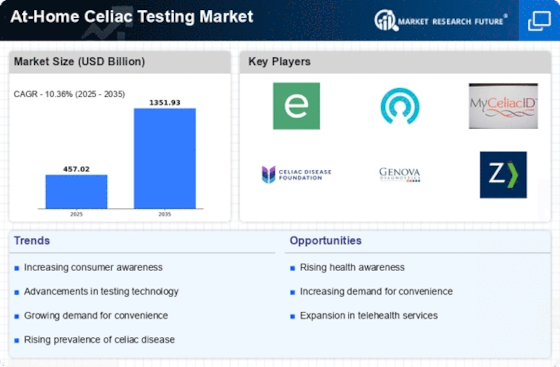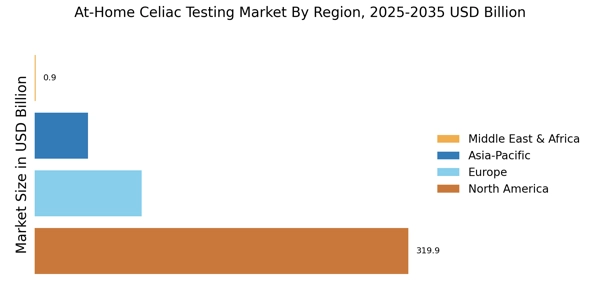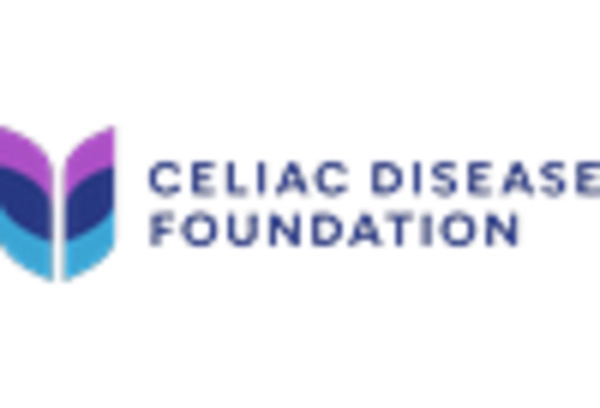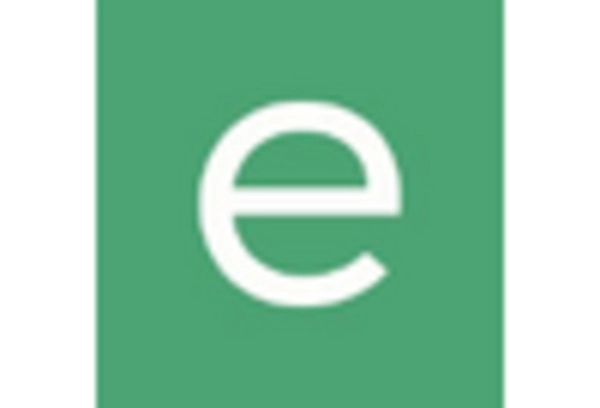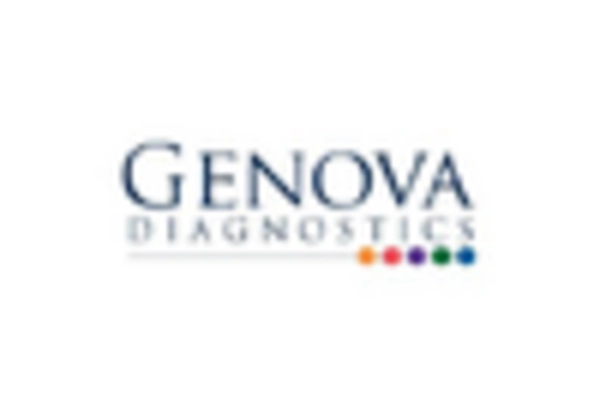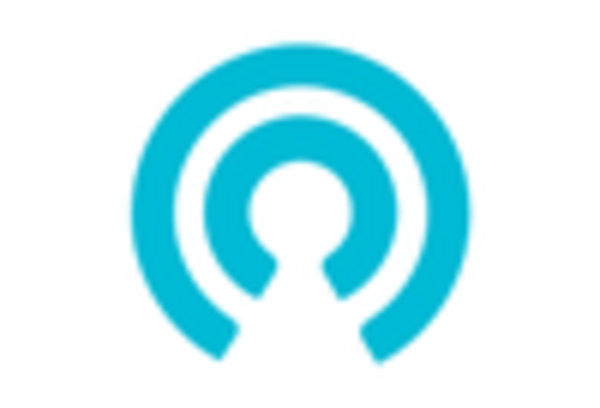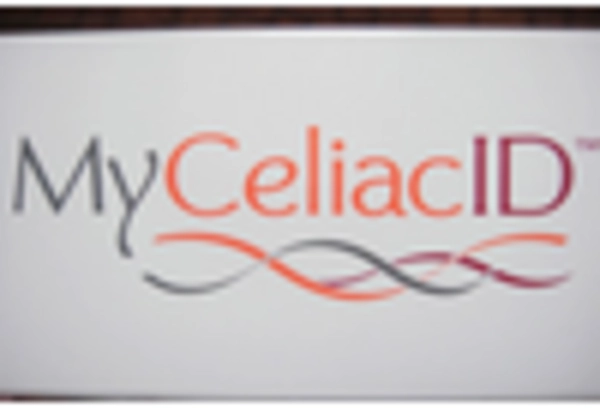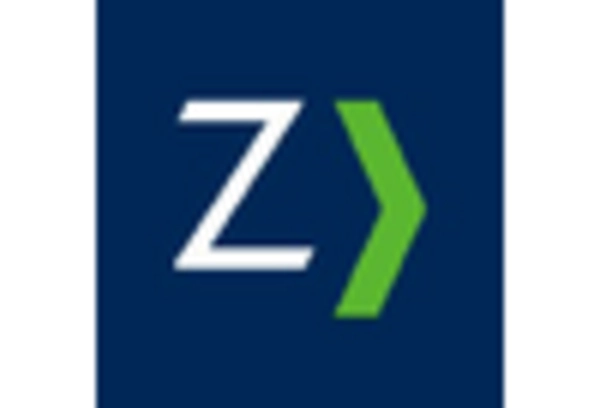Advancements in Testing Technology
Technological innovations play a crucial role in shaping the At-Home Celiac Testing Market Industry. Recent advancements in testing methodologies have led to the development of more accurate and reliable at-home testing kits. These innovations not only improve the sensitivity and specificity of tests but also enhance the overall user experience. For instance, the introduction of rapid testing technologies allows individuals to receive results within minutes, thereby increasing the appeal of at-home testing. Furthermore, the integration of digital platforms for result interpretation and follow-up recommendations is becoming more common. As technology continues to advance, the At-Home Celiac Testing Market Industry is expected to benefit from increased consumer trust and adoption, ultimately driving market growth.
Support from Healthcare Professionals
The At-Home Celiac Testing Market Industry is also benefiting from the growing support of healthcare professionals who recognize the importance of early diagnosis and management of celiac disease. Many practitioners are now recommending at-home testing as a viable option for patients who exhibit symptoms or have a family history of the condition. This endorsement from healthcare providers not only enhances the credibility of at-home testing kits but also encourages patients to take proactive steps in managing their health. Furthermore, educational initiatives aimed at both healthcare professionals and the public are increasing awareness about celiac disease and the benefits of early detection. As healthcare professionals continue to advocate for at-home testing, the At-Home Celiac Testing Market Industry is likely to see sustained growth and acceptance among consumers.
Increased Prevalence of Celiac Disease
The rising incidence of celiac disease is a primary driver for the At-Home Celiac Testing Market Industry. Recent estimates suggest that approximately 1 in 100 individuals are affected by this autoimmune disorder, leading to heightened awareness and demand for testing solutions. As more people become aware of the symptoms associated with celiac disease, the need for accessible testing options increases. This trend is further supported by healthcare professionals advocating for early diagnosis and management of the condition. Consequently, the At-Home Celiac Testing Market Industry is likely to experience growth as individuals seek to confirm their health status without the need for invasive procedures. The convenience of at-home testing aligns with the growing preference for self-managed health solutions, making it a pivotal factor in market expansion.
Rising Health Consciousness Among Consumers
The growing health consciousness among consumers is a significant driver for the At-Home Celiac Testing Market Industry. As individuals become more proactive about their health, there is a noticeable shift towards preventive measures and early detection of health issues. This trend is reflected in the increasing interest in dietary choices and the impact of gluten on overall well-being. Consumers are more inclined to seek testing options that can provide insights into their health status, particularly regarding celiac disease. Market Research Future indicates that health and wellness products are experiencing robust growth, suggesting that the At-Home Celiac Testing Market Industry is well-positioned to capitalize on this trend. As awareness of celiac disease and its implications continues to rise, the demand for at-home testing solutions is likely to increase.
Growing Demand for Convenience and Accessibility
The At-Home Celiac Testing Market Industry is significantly influenced by the increasing demand for convenience and accessibility in healthcare. Consumers are increasingly seeking solutions that allow them to manage their health from the comfort of their homes. This trend is particularly relevant for individuals who may experience anxiety or discomfort in clinical settings. At-home testing kits provide a user-friendly alternative, enabling individuals to conduct tests privately and at their convenience. Market data indicates that the home healthcare market is projected to grow substantially, reflecting a shift in consumer preferences towards self-testing options. As the At-Home Celiac Testing Market Industry evolves, manufacturers are likely to focus on enhancing the user experience, thereby attracting a broader customer base and driving market growth.


